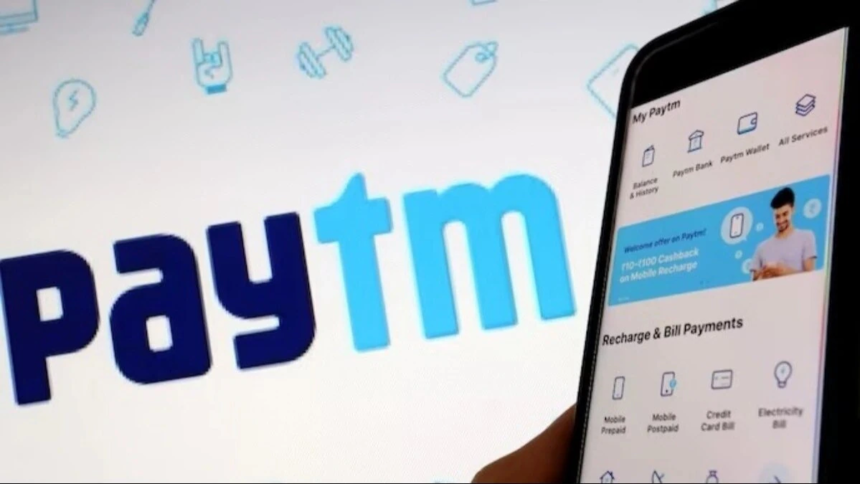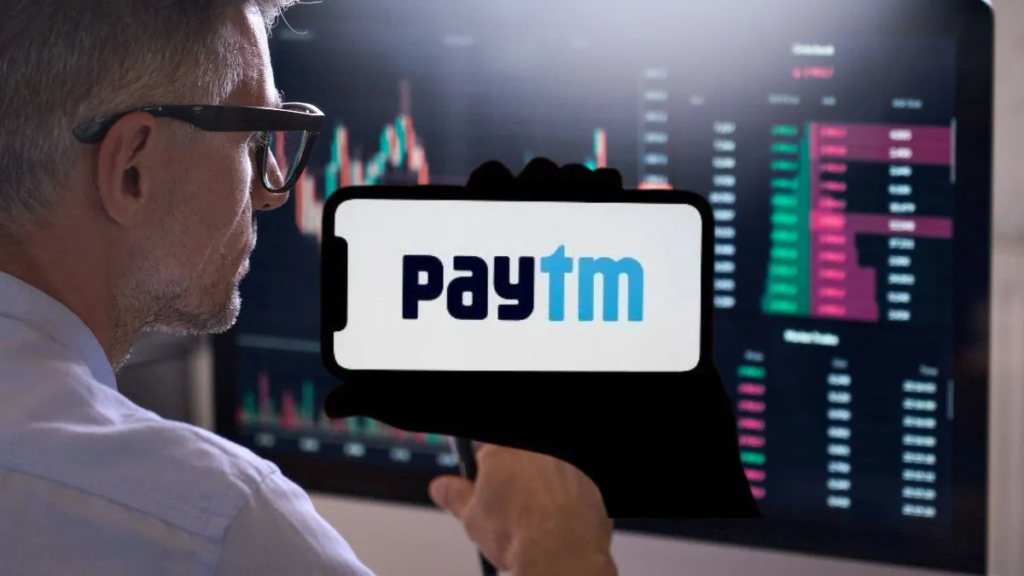Paytm’s parent company, One 97 Communications, recently posted its Q2 FY25 financial results, boasting a net profit of ₹928 crore. This significant figure was largely attributed to a one-time gain from the sale of its movie ticketing business to Zomato. Despite the positive profit, Paytm share price took a hit, dropping 8% after the announcement. Wondering what caused this unusual market reaction? Let’s break down the details.
Paytm’s Quarterly Financial Performance
One 97 Communications, widely recognized as Paytm, surprised many with a reported net profit of ₹928 crore in Q2 FY25. However, this profit was strongly influenced by a one-time gain of ₹1,345 crore from the sale of its entertainment ticketing business to Zomato. Without this one-time deal, Paytm would have registered a net loss of ₹415 crore. For comparison, Paytm’s losses in the same quarter last year stood at ₹291.7 crore.
Even though the profit figure seems impressive on the surface, the Paytm share price suffered after the results, falling 8% to ₹669.65 on the BSE.
Impact of the Zomato Deal on Paytm’s Financials
The sale of Paytm’s entertainment ticketing business to Zomato proved to be a game-changer in this quarter. The final transaction value was ₹2,014 crore, which resulted in a one-time gain of ₹1,345 crore. This move was seen as a strategic decision to streamline operations and strengthen the balance sheet. But despite the positive impact of this deal, the Paytm share price continued to drop, reflecting investor concerns about the company’s core performance.
In total, Paytm’s revenue from operations dropped 34% year-on-year to ₹1659.5 crore, compared to ₹2,518.6 crore in the same quarter last year. However, the sequential improvement of 10.5% compared to the previous quarter didn’t seem to reassure investors, as they remained focused on the underlying operational performance.
Core Business Focus: Cross-Selling Financial Services
Paytm has been steadily shifting its focus towards acquiring customers for its payment services and cross-selling financial products. The company aims to diversify revenue streams by offering financial services such as loans, insurance, and equity broking to both consumers and merchants. This business model is designed to turn Paytm’s vast customer base into long-term, recurring users of its financial services.
In Q2 FY25, the number of key financial services customers reached 6 lakh, showing only slight growth from 5.9 lakh in Q1 FY25. Paytm emphasized that the opportunity for growth lies in the low penetration of these services among its users, presenting an untapped potential for the company.
Even with this optimistic outlook for financial services, the Paytm share price reflects investor caution. Many are waiting to see whether this strategy will actually result in sustainable, long-term growth.
Zomato Deal Strengthens Paytm’s Balance Sheet
The sale of the entertainment ticketing business to Zomato didn’t just boost Paytm’s net profit—it also significantly strengthened the company’s financial position. The ₹1,345 crore one-time gain improved Paytm’s cash reserves, bringing the total to ₹9,999 crore. This additional liquidity could provide Paytm with the flexibility to make further investments in its financial services sector.
While the deal was viewed as a positive move to streamline operations, it hasn’t eased all investor concerns. The Paytm share price continues to reflect unease, as the underlying performance of the company’s core businesses remains under pressure.
Decline in Revenue: A Sign of Trouble?
Paytm’s revenue from operations for Q2 FY25 stood at ₹1659.5 crore, marking a significant 34% drop compared to the same period last year. This drop in revenue is a red flag for many investors, signaling that the company’s core businesses are struggling, especially after selling off a profitable division like entertainment ticketing.
Interestingly, on a sequential basis, Paytm’s revenue grew by 10.5% compared to Q1 FY25. But even this improvement wasn’t enough to prevent the fall in Paytm share price, which highlights investor apprehension about the company’s future growth trajectory.
What’s Next for Paytm?
Paytm has made it clear that its future lies in expanding its financial services portfolio. In the coming quarters, the company plans to shift its focus to reporting two key metrics: the number of key financial services customers (both consumer and merchant) and the revenue generated from these financial services.
The Zomato deal has provided Paytm with the necessary capital to make strategic investments, but it will need to prove that these investments can drive sustained growth. Investors will be closely watching how Paytm executes its cross-selling strategy to expand its financial services business.
Why Did Paytm’s Shares Drop Despite a Net Profit?
It’s easy to assume that a net profit of ₹928 crore should have sent Paytm’s shares soaring. So, why did the Paytm share price drop by nearly 8% after the results? The answer lies in the details. Once you strip away the one-time gain from the Zomato deal, Paytm’s core business performance reveals a loss of ₹415 crore, which is a major cause for concern among investors.
The stock market’s reaction indicates that investors are not fully convince of Paytm’s long-term strategy. The focus on cross-selling financial services is a promising direction, but the actual growth numbers so far haven’t been enough to instill confidence in the market.
Read More: India A vs UAE Streaming: ACC Men’s T20 Emerging Asia Cup 2024- Click Here
Conclusion
Paytm’s Q2 FY25 results highlight a company in transition. While the sale of its entertainment ticketing business to Zomato provided a much-needed boost, the drop in revenue and the net loss (excluding one-time gains) raise concerns about its core operations. The Paytm share price reacted negatively, reflecting investor skepticism about the sustainability of the company’s growth.
Looking ahead, Paytm’s success will likely depend on how well it can execute its cross-selling strategy for financial services. With strong cash reserves thanks to the Zomato deal, the company has the financial flexibility to make bold moves. But until the core business shows more consistent performance, the Paytm share price is likely to remain volatile.










